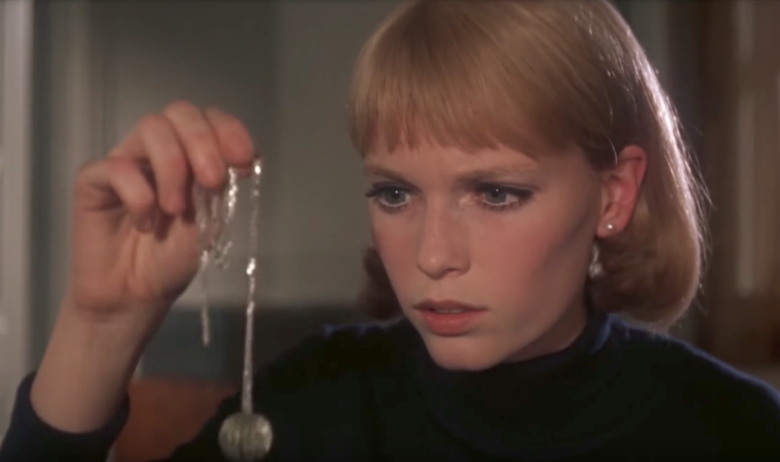All tagged satanic horror
Ken Russell’s The Devils (1971) has been called the most controversial film in Hollywood history. Not just controversial for its time, Russell’s masterpiece remains shocking to this day in its depictions of cruelty, orgiastic sexuality, the evils of the 17th-century Catholic Church, and blasphemous imagery.
The film tells an old historical truth about political martyrs … and gets censored for it.
The ham-fistedness of Ready or Not fits the carefully-crafted and well-paced balance of quippy, campy, self-aware pulp horror/comedy. The film doesn’t waste a single moment of screen time and pays close attention to the arcs of its three main characters through the deconstruction of Grace's wedding dress as she finds herself hunted in The Most Dangerous Game: Satanic Mansion Edition.
Rosemary’s Baby and the films that have followed it draw clear lines between Satanic cults and capitalism. They tell stories about the evils that unchecked, late-stage capitalism incentivizes: selfishness, greed, ruthlessness, and the sacrifice of others for status, wealth, power, and privilege.
There’s a rich film tradition drawing on and indulging humanity’s long and ongoing history of Satanic panics. In We Summon the Darkness (2019), though, the Satanists we need to watch out for are a congregation of Christians following a televangelist who fancies himself “the wrath of God.” That man, Pastor John Henry Butler is, in our reading of the film, the physical embodiment of Satan on Earth. The fallen Lucifer, warped by pride and a lust for power.
We wanted to bring you a list of good Pagan horror we didn’t get to talk about last month. But there was a problem. In our search for Pagan horror, we came across a lot of Satanic cults and witches, as well as some stories and creatures from old folktales, but relatively little in the way of what we would call Pagan horror. So instead, we’re going to tell you about some other great folk horror we came across.
Häxan has left behind a unique legacy, and lots of folks have written about it as an early film that blurred the lines between fact and fiction, reality and fantasy. It is also an essay, which is key to its integrity and artfulness. The Wrong Version of the film, recut, renamed a name we shall not name, and punched up with an out-of-place jazz score, scraps all that in favor of what feels like a deeply insensitive, drugged-out History Channel documentary.







